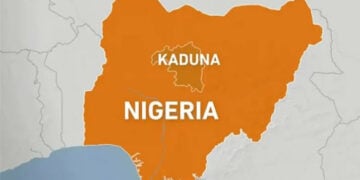Fintech in Nigeria has experienced a vibrant evolution over the past two years, marked by developments and impactful changes that have reshaped the financial landscape. Some pivotal news stories that have shaped the Nigerian fintech space in 2023, which reflect the country’s embrace of digital innovation and financial inclusivity, are as follows:
1. CBN’s Regulatory Reforms:
Embracing Innovation
In 2023, the Central Bank of Nigeria (CBN) initiated progressive regulatory reforms to foster a conducive environment for fintech growth while ensuring financial stability. The CBN reviewed and revised existing regulations on agent banking and released an exposure draft titled “Regulatory Framework for Agent Banking in Nigeria”.
It emphasised that the minimum standards for the selection and approval procedure for each agent category must be clearly defined by Financial Institutions. The CBN’s updates to agent banking, which is also called mobile money because of the presence of non-bank players such as OPay, Pagatech Ltd, PalmPay, etc, in the industry, laid the groundwork for enhanced consumer protection and operational standards within the industry. There are about 30 mobile money operators in Nigeria. Click this link for the list of bank and non-bank mobile money operators. This move underscored the CBN’s commitment to balancing innovation with prudent oversight.
2. Expansion of Digital Payments and Investment and Funding
During this period, Nigeria witnessed an unprecedented surge in digital payment adoption, driven by leading fintech players like Flutterwave and Paystack. These platforms revolutionised the payment landscape, offering businesses and individuals seamless payment solutions. In 2023, fintech other tech and fintech startups such as Moove raised $76 million, LemFi raised $33 million, Nomba (former Kudi) raised $30 million, OnePipe raised $4.8 million, and FairMoney raised $5.39million. Helium Health raised US$30 million (included because of Helium Credit, their fintech arm). These investments fueled product innovation, market expansion, and efforts to enhance accessibility to financial services.
3. Neobanks and Digital Lenders: Kuda Bank and Carbon’s Impact
The emergence of neobanks and digital lenders gained momentum, with Kuda Bank and Carbon (formerly Paylater) leading the charge. Other neobanks and digital lenders such as Rubies Bank and Renmnoney exist. Kuda Bank’s user-friendly mobile app and Carbon’s instant loan services disrupted traditional banking, catering to the needs of underserved populations. Kuda Bank’s impressive growth, securing over 1 million customers by 2023, reflected the increasing demand for innovative banking solutions. These neobanks and digital lenders are crucial in advancing financial inclusion by reaching unbanked and underbanked populations. These fintechs leverage technology to streamline processes, enhance user experience, and lower operational costs. They empower individuals and businesses with accessible, convenient, and efficient banking and lending solutions. As the fintech ecosystem matures, these players are poised to reshape the financial services landscape and contribute to broader economic development.
4. Navigating Cryptocurrency Regulation: Addressing Regulatory Uncertainties
Nigeria faced challenges in regulating cryptocurrencies and blockchain technology. In December 2023, the Central Bank of Nigeria issued the Guidelines on Operations of Bank Accounts for Virtual Assets Service Providers (“VASPs”) (“Guidelines”), thereby reversing its earlier ban on Banks and Other Financial Institutions (“BoFIs”) from operating accounts for cryptocurrency service providers. The Guidelines provide the regulatory framework for the operation of bank accounts for VASPs licenced by the Securities and Exchange Commission (“SEC”) in Nigeria. The CBN’s guidelines on digital currencies emphasised responsible usage and compliance with AML measures. Despite regulatory uncertainties, interest in cryptocurrencies soared among Nigerian investors, with initiatives like the Nigerian Crypto Community advocating for clearer regulations to support innovation and investor confidence.
5. Strategic Partnerships and Collaborations: Driving Industry Synergies
Fintech companies form strategic partnerships and collaborations to leverage technology and distribution networks. In 2023, we looked at three acquisitions: Autochek’s acquisition of Autotager, an Egyptian automotive technology company; Fairmoney’s acquisition of Payforce; and Blockfinex’s, a UAE company’s acquisition of Fluidcoins, a Nigerian crypto payment gateway.
Fairmoney, known for offering retail loans through its digital lending platform, acquired Payforce, a company specialising in merchant payment services. The strategic move aims to deepen financial inclusion in Nigeria by creating a more holistic financial ecosystem. By acquiring Payforce technology, Fairmoney hopes to offer its loan to merchants while leveraging Payforce licenses to reduce their payment processing fees.
Fluidcoins, a Nigerian crypto payment gateway startup, was acquired by Blockfinex, a prominent cryptocurrency exchange in the United Arab Emirates. Structured as an “acqui-hire,” the deal saw Fluidcoin’s founding team join Blockfinex. This move strengthens Blockfinex’s presence in the African market and provides Fluidcoins’s team with a broader platform to develop their technology.
Autochek, a Nigerian company providing innovative vehicle financing solutions, acquired a majority stake in Autotager, an Egyptian automotive technology company. This cross-border acquisition capitalises on Egypt’s growing demand for car ownership and financing solutions. Autochek hopes to leverage CarFinder’s expertise and network to expand its reach into the lucrative Egyptian market, offering financial services tailored to local needs.
Conclusion:
2023 exemplified Nigeria’s dynamic fintech landscape, characterised by regulatory advancements for Agency (mobile money) banking and Cryptocurrencies and virtual assets, expansion of digital payment, investments and fundings, deepening of NeoBanks and digital lenders, and acquisitions. These developments set the stage for continued growth and disruption in the years ahead, underscoring Nigeria’s pivotal role as a fintech hub in Africa.
About the Author: Kenechi Yvonne Umeh is a business development professional based in Lagos, Nigeria, with extensive experience in omnichannel fintechs focused on Pan-African merchant acquiring. She specialises in sales, partnerships, and driving business growth for fintech companies. She is currently an employee of BudPay. Bud Infrastructure Limited (BudPay) is a digital technology company dedicated to building modern payments infrastructure that allows businesses to receive payments globally.
We’ve got the edge. Get real-time reports, breaking scoops, and exclusive angles delivered straight to your phone. Don’t settle for stale news. Join LEADERSHIP NEWS on WhatsApp for 24/7 updates →
Join Our WhatsApp Channel










